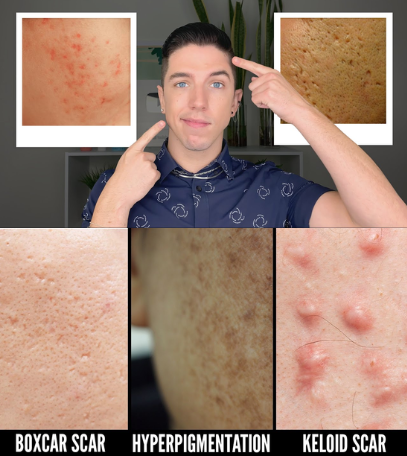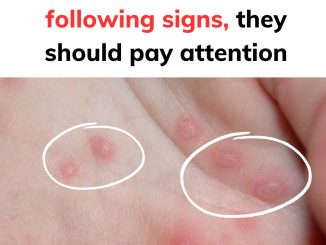
Acne may fade, but the scars it leaves behind can feel like permanent reminders of the struggle. Among the most frustrating are pitted scars, also known as atrophic or “ice pick” scars, which create small depressions in the skin. If you’ve dealt with these stubborn marks, you’ve probably asked yourself: Can acne scars ever really go away? The answer is both hopeful and realistic. While total erasure is tough, modern treatments and smart skincare can dramatically improve the look and feel of your skin.
Understanding Pitted Acne Scars
Not all acne scars are the same. Pitted scars form when severe acne damages the deeper layers of skin. Instead of healing smoothly, the skin repairs itself unevenly, leaving small indentations or “holes.” There are three main types:
- Ice pick scars: Deep, narrow holes that look like tiny punctures.
- Boxcar scars: Wide, shallow depressions with sharp edges.
- Rolling scars: Wavy indentations that make skin look uneven.
Knowing which type you have helps determine which treatments will work best.
Why Do Acne Scars Happen?
Scarring isn’t just about the breakout—it’s about how your skin heals. Several factors make pitted scars more likely:
- Severe cystic acne that inflames deeper tissues
- Delayed or improper treatment of breakouts
- Picking or squeezing pimples, which damages the skin
- Genetics that affect your skin’s ability to heal
Think of scars as “footprints” left behind after the acne has passed. The deeper the damage, the harder it is for skin to repair itself naturally.
Can Acne Scars Be Completely Removed?
Here’s the truth: completely removing pitted acne scars is nearly impossible. Even advanced treatments rarely restore skin to its pre-acne state. But there’s good news—scars can be significantly improved, often to the point where they’re barely noticeable. Many people see smoother skin, better texture, and a boost in confidence after the right treatment plan.
It’s not about perfection—it’s about progress.
At-Home Care to Support Scar Healing
While home remedies won’t erase deep scars, they can improve skin texture and prevent scars from looking worse.
- Exfoliation with AHAs/BHAs: Helps shed old skin cells and smooth surface irregularities.
- Retinoids: Stimulate collagen production, which can gradually improve mild scars.
- Niacinamide: Reduces inflammation, improves elasticity, and supports skin barrier repair.
- Vitamin C: Brightens skin and fades post-acne dark spots that often accompany scars.
Consistency matters. These products don’t deliver overnight miracles, but they strengthen your skin over time, making professional treatments more effective.
Video : How to Get Rid of Acne Scars
Professional Treatments for Pitted Acne Scars
For deeper scars, professional procedures deliver the most dramatic results. Dermatologists often recommend a combination of these:
- Microneedling: Tiny needles stimulate collagen production, gradually filling in scars.
- Laser resurfacing: Fractional lasers remove damaged skin and encourage new, smoother growth.
- Chemical peels: Use controlled exfoliation to reduce surface-level scars and uneven tone.
- Dermal fillers: Temporary injections that raise depressed scars to match the surrounding skin.
- Subcision: A minor procedure where scar tissue under the skin is loosened to reduce indentation.
Each method targets scars differently, and the best results usually come from combining treatments over time.
Factors That Influence Results
Not everyone responds the same way to scar treatments. Several things can affect your results:
- Severity of scars: Deeper, older scars need more intensive care.
- Skin type: Some skin tones are more prone to pigmentation changes after treatment.
- Consistency: Multiple sessions are usually needed for lasting improvement.
- Aftercare: Sun protection and proper skincare after treatment are crucial for healing.
Think of scar treatment like training for a marathon—you don’t win overnight, but steady effort pays off.
Preventing New Scars While You Heal
The best way to deal with scars is to prevent new ones from forming. While treating existing scars, make sure to:
- Avoid picking or squeezing pimples.
- Treat acne early with proper skincare or medical advice.
- Use sunscreen daily to protect healing skin from darkening.
- Keep skin hydrated and balanced.
Protecting your skin now ensures you don’t end up chasing more scars later.
Video : Remove Acne Scars Naturally | 3 Remedies (100% Works) With Results
Conclusion
Pitted acne scars may never vanish completely, but they don’t have to define your skin forever. With consistent at-home care, smart product choices, and modern professional treatments, scars can fade dramatically, leaving your skin smoother and healthier-looking. The key is patience and persistence—progress is possible, even if perfection isn’t. Clearer, more confident skin is within reach when you combine daily care with targeted treatments.


